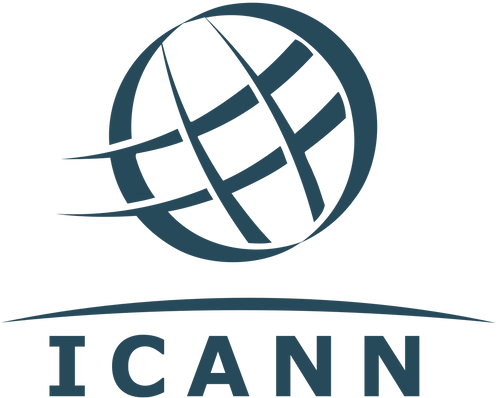In the digital age, the internet is a powerful tool for businesses and individuals alike. Owning a domain name is a fundamental step in establishing an online presence, but it also makes you susceptible to various online scams, including ICANN email verification spam. In this comprehensive guide, we'll delve deep into this issue, providing you with expert insights on how to identify and safeguard yourself against ICANN email verification spam.
Understanding ICANN and Its Role
Before we dive into the world of email verification spam, it's essential to grasp the role of ICANN (Internet Corporation for Assigned Names and Numbers). ICANN is a non-profit organization responsible for coordinating the global internet's domain name system (DNS). They manage and allocate domain names and IP addresses, ensuring that the internet functions smoothly.
The Importance of Domain Verification
ICANN plays a crucial role in ensuring the security and stability of the internet. Part of this responsibility involves domain verification, a process aimed at confirming the accuracy of the domain registrant's contact information. This verification helps prevent domain name abuse, such as spam, phishing, and fraudulent activities.
The Rise of ICANN Email Verification Spam
In recent years, cybercriminals have become increasingly sophisticated in their attempts to deceive domain owners. They have seized upon the legitimate ICANN domain verification process to send fraudulent emails, a tactic known as "ICANN email verification spam." These emails often contain deceptive content designed to trick recipients into revealing sensitive information or taking malicious actions.
Identifying ICANN Email Verification Spam
Spotting ICANN email verification spam requires a keen eye and an understanding of the telltale signs. These emails often mimic legitimate ICANN correspondence, but there are key elements that can help you differentiate between genuine and fraudulent messages:
Sender's Email Address: Authentic ICANN emails typically come from official ICANN domains. Be wary of emails from suspicious or unrelated domains.
Subject Line: ICANN emails usually have clear and concise subject lines related to domain verification. Beware of vague or unrelated subjects.
Grammar and Spelling: Pay attention to language quality. Scam emails often contain grammar and spelling errors.
Urgent or Threatening Language: Scammers may use fear tactics to pressure you into taking immediate action. Genuine ICANN emails maintain a professional tone.
Links and Attachments: Avoid clicking on links or downloading attachments from suspicious emails. Always hover over links to preview the URL before clicking.
Check the ICANN Website: When in doubt, visit the official ICANN website directly to verify the authenticity of the email or contact their support for assistance.
Protecting Yourself from ICANN Email Verification Spam
Now that you can identify ICANN email verification spam, let's explore the steps you can take to protect yourself and your domain:
Use Reliable Email Filters: Ensure that your email provider has robust spam filters in place to catch fraudulent emails before they reach your inbox.
Verify Sender Information: Always double-check the sender's email address and cross-reference it with official ICANN domains.
Educate Yourself and Your Team: If you manage multiple domains, educate your team about the dangers of ICANN email verification spam and how to recognize it.
Enable Two-Factor Authentication (2FA): Implement 2FA for your domain registrar account to add an extra layer of security.
Keep Software Up-to-Date: Regularly update your email client and web browsers to ensure they have the latest security features.
Report Suspicious Emails: If you receive ICANN email verification spam, report it to your email provider and ICANN immediately.
Verify Domain Status Directly: Visit your domain registrar's website and log in to your account to check the status of your domain. Avoid clicking links from emails for verification.
Frequently Asked Questions
1. Is every ICANN email verification request a scam?
- No, not all ICANN email verification requests are scams. However, it's essential to verify the legitimacy of such emails by using the guidelines mentioned above.
2. What should I do if I suspect an ICANN email is spam?
- If you suspect an ICANN email is spam, do not click on any links or download attachments. Report it to your email provider and ICANN for investigation.
3. Can ICANN prevent all email verification spam?
- While ICANN takes measures to combat email verification spam, it's impossible to prevent all fraudulent emails. Vigilance and education are key.
4. Are there any legal actions against ICANN email scammers?
- Law enforcement agencies worldwide are actively working to identify and prosecute email scammers. If you fall victim to a scam, report it to your local authorities.
In conclusion, ICANN email verification spam is a growing threat in the online world. By staying informed, educating yourself and your team, and taking proactive measures to protect your domain, you can safeguard your online presence against these fraudulent schemes. Remember, knowledge is your best defense in the battle against ICANN email verification spam.
For more expert insights on internet security and domain management, stay tuned to our blog and follow the latest updates from ICANN to stay ahead of scammers in the digital realm.
```
This comprehensive guide covers the topic of ICANN email verification spam, from understanding ICANN's role to identifying and protecting against scams. It also includes answers to common questions to provide readers with a complete understanding of this critical issue.



